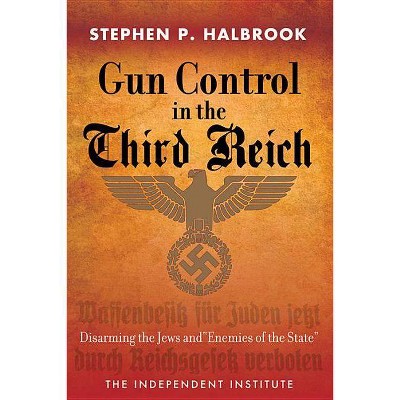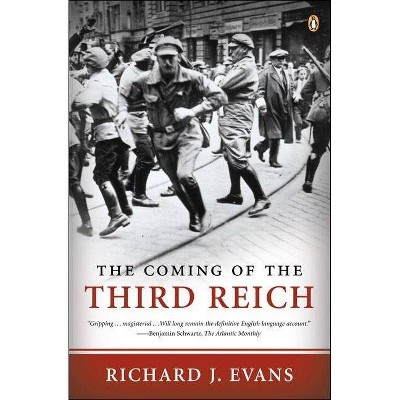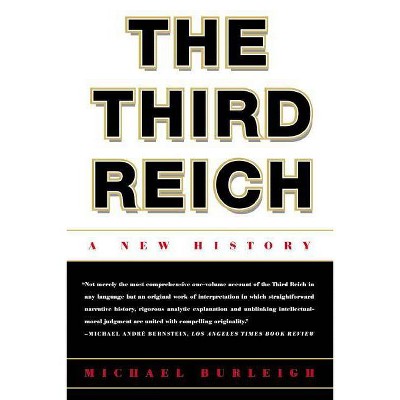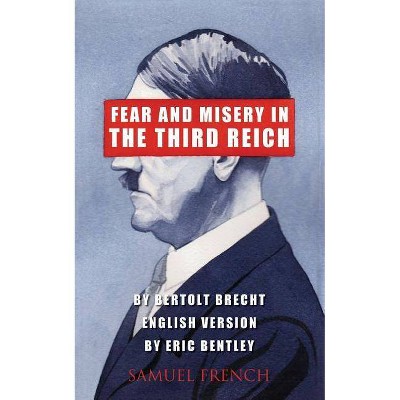Gun Control in the Third Reich - by Stephen P Halbrook (Paperback)

Similar Products
Products of same category from the store
AllProduct info
<p/><br></br><p><b> Book Synopsis </b></p></br></br>Based on newly-discovered, secret documents from German archives, diaries and newspapers of the time, Gun Control in the Third Reich</b> presents the definitive, yet hidden history of how the Nazi regime made use of gun control to disarm and repress its enemies and consolidate power. The countless books on the Third Reich and the Holocaust fail even to mention the laws restricting firearms ownership, which rendered political opponents and Jews defenseless. A skeptic could surmise that a better-armed populace might have made no difference, but the National Socialist regime certainly did not think so--it ruthlessly suppressed firearm ownership by disfavored groups. </p>Gun Control in the Third Reich</b> spans the two decades from the birth of the Weimar Republic in 1918 through Kristallnacht in 1938. The book then presents a panorama of pertinent events during World War II regarding the effects of the disarming policies. And even though in the occupied countries the Nazis decreed the death penalty for possession of a firearm, there developed instances of heroic armed resistance by Jews, particularly the Warsaw ghetto uprising.<p/><br></br><p><b> Review Quotes </b></p></br></br><br><i>Gun Control in the Third Reich</i> is a provocative book on what is surely the 'worst case scenario' in the history of gun control and an illuminating meditation on the role that the disarming of the Jews played in the Holocaust. --Jonathan Kirsch, author, <i>The Short, Strange Life of Herschel Grynszpan</i><br><br><i>Gun Control in the Third Reich</i>, Stephen Halbrook's excellent history of gun control in Germany, shows that, motives notwithstanding, removing weapons from the general population always disarms society vis a vis its worst elements. In Germany the authorities tried to deal with the Nazi and Communist mobs that were shaking society's foundations indirectly, by disarming ordinary people. But their cowardice ended up delivering a helpless population to the Nazis' tender mercies. Halbrook's richly documented history leads Americans to ask why those among us who decry violence in our society choose to try tightening the vise on ordinary citizens' capacity to defend themselves rather than to constrain the sectors of society most responsible for the violence. --Angelo M. Codevilla, Professor Emeritus of International Relations, Boston University; author, <i>Informing Statecraft, War: Ends and Means</i> (with Paul Seabury), The Character of Nations</i>, and Between <i>the Alps and a Hard Place: Switzerland in World War II</i> and the <i>Rewriting of History</i><br><br>'The devil is in the details' as the British note. Stephen Halbrook's excellent and deeply researched book, <i> Gun Control in the Third Reich</i>, has revealed the anticipation of Nazi gun control techniques in Weimar attempts to control incipient civil war between Nazis and Communists [...] History does indeed provide important lessons for contemporary debates and Halbrook's important research should inform our contemporary debate on gun control. --Steven B. Bowman, Professor of Judaic Studies, University of Cincinnati; Miles Lerner Fellow, U.S. Holocaust Memorial Museum; whose books include Jewish Resistance in Wartime Greece</i>, The Holocaust in Salonika</i>, <i>The Agony of Greek Jews 1940-1945</i>, and <i>The Straits of Hell: The Chronicle of a Salonikan Jew in the Nazi Extermination Camps Auschwitz, Mauthausen, Melk, Ebensee</i><br><br>Even a defense with small arms against a tyrannical regime, if known, can galvanize public opinion which is the ultimate source of all political authority. That is why, as Halbrook authoritatively shows in <i>Gun Control in the Third Reich</i>, the Nazis-despite their massive military force-went out of their way to confiscate even small caliber weapons in Germany. --Donald W. Livingston, Professor of Philosophy Emeritus, Emory University<br><br>For Jews left trembling in their homes, powerless to defend against Nazi Stormtroopers, the right to possess a gun took on special meaning in the 1940's. In Stephen Halbrook's extraordinary book, <i>Gun Control in the Third Reich</i>, the consequence of disarming a population making them vulnerable to imprisonment and annihilation is told with frightening detail. It is a history with poignancy. With gun controllers in our midst today, who either do not understand the Second Amendment or choose to redefine it for their own ends, it would serve them well to read and digest the powerful arguments in this pathbreaking book. --Herbert I. London, President, London Center for Policy Research; former President, Hudson Institute<br><br>Stephen Halbrook's meticulous research in <i>Gun Control in the Third Reich</i> sheds new and revealing light on the consolidation of Nazi power and the prosecution of the Holocaust. Everyone, including advocates of gun controls, should find this pioneering and thought-provoking book essential reading. --James B. Jacobs, Warren E. Burger Professor of Law, New York University; author, <i>Can Gun Control Work?</i><br><br>What good would private arms do against a totalitarian state? That won't remain an unanswerable rhetorical challenge for readers of Stephen Halbrook's calm, detailed scholarly book, <i> Gun Control in the Third Reich</i>. As Halbrook shows, Nazi leaders went to great lengths to extend the gun control laws they inherited from the Weimar Republic. They were obsessed with disarming Jews and other designated public enemies. Potential resistance was not only physically disabled. It was morally and psychologically disarmed. Evil then became irresistible in Germany, not because it was fueled by fanaticism but because shielded by fatalism. --Jeremy A. Rabkin, Professor of Law, George Mason University School of Law<br><br>With <i>Gun Control in the Third Reich</i>, Stephen Halbrook has written an important and disturbing book. It provides a timely reminder that self defense and the right to bear arms are fundamental human rights. --Robert J. Cottrol, Professor of Law, History, and Sociology and Harold Paul Green Research Professor of Law, George Washington University<br><p/><br></br><p><b> About the Author </b></p></br></br><b>Stephen P. Halbrook</b> is a Research Fellow with the Independent Institute who has argued and won three constitutional law cases before the U.S. Supreme Court. Dr. Halbrook is the author of eight books including The Founders' Second Amendment: Origins of the Right to Bear Arms</i>; Securing Civil Rights: Freedmen, the Fourteenth Amendment, and the Right To Bear Arms</i>; That Every Man Be Armed: The Evolution of a Constitutional Right</i>; A Right to Bear Arms: State and Federal Bills of Rights and Constitutional Guarantees</i>; <i>Target Switzerland</i> (also in German, French, Italian, and Polish editions); and The Swiss and the Nazis: How the Alpine Republic Survived in the Shadow of the Third Reich</i>. He holds a Ph.D. in philosophy from Florida State University and J.D. from Georgetown University Law Center. His popular articles have appeared in the Wall Street Journal</i>, <i>San Antonio Express-News</i>, <i>Environmental Forum</i>, <i>USA Today</i>, and Washington Times</i>, and he has appeared on numerous national TV/radio programs such as "The Phil Donahue Show" and programs on Fox Business Network, Court TV, Voice of America, CNN, and C-SPAN.
Price History
Price Archive shows prices from various stores, lets you see history and find the cheapest. There is no actual sale on the website. For all support, inquiry and suggestion messages communication@pricearchive.us




















